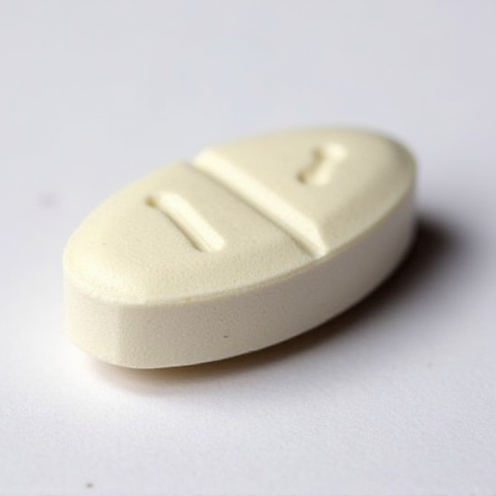CNN 100 Tablet
Product Info
| Prescription required | Yes |
| Marketer | Ipca Laboratories Ltd |
| Active Ingredient | Minocycline (100mg) |
| Storage | Store below 30°C |
| Chemical Class | Tetracyclines |
| Habit Forming | No |
| Therapeutic Class | ANTI INFECTIVES |
| Action Class | Tetracyclines |
| User Rating | 4.4 |
| User Reviews | 631 |
FAQ


















CNN 100 Tablet Reviews
CNN 100 is also used to treat many sexually transmitted diseases and a skin condition known as acne. It may be taken with or without food. However, you should take it regularly at evenly spaced intervals as per the schedule prescribed by your doctor. Taking it at the same time every day will help you to remember to take it. The dose will depend on what you are being treated for, but you should always complete a full course of this antibiotic as prescribed by your doctor. Do not stop taking it until you have finished, even when you feel better. If you stop taking it early, some bacteria may survive and the infection may come back.
Commonly seen side effects seen with this medicine include headache, dizziness, vomiting, nausea, diarrhea, and skin reaction on exposure to sunlight (photosensitivity). Avoid excessive sun exposure and use sunscreen and protective clothing when outdoors. These are usually temporary and subside with the completion of treatment. Consult your doctor if you find these side effects bother or worry you.
Inform your doctor if you have any previous history of allergy to any antibiotic or liver or kidney problems before taking this medicine. You should also let your healthcare team know all other medicines you are taking as they may affect, or be affected by, this medicine. Pregnant or breastfeeding women should consult their doctor before using it. It may blur your vision or make you feel sleepy and dizzy. Do not drive if these symptoms occur.
How CNN 100 Tablet Works
How to Use CNN 100 Tablet
Benefits of CNN 100 Tablet
- In Treatment of Bacterial infections: CNN 100 is an antibiotic medicine that can be used to treat many different infections caused by bacteria. It stops the growth of the bacteria causing the infection and clears the infection. Take it for as long as prescribed by the doctor and avoid skipping doses. This will make sure that all bacteria are killed and they do not become resistant.
- In Treatment of Acne: CNN 100 treats acne, commonly called pimples. It kills the acne-causing bacteria and prevents spots or pimples from appearing. It usually takes a few weeks to have a noticeable effect so keep using it even if it appears not to be working. Sometimes acne may get worse before it gets better, however, with proper use, your skin will get clearer. The earlier you start using it, the less likely you are to get scars. This medicine will help improve your mood and uplift your confidence as your skin becomes acne-free. It should not be used if you have eczema or sunburned skin.
Uses of CNN 100 Tablet
- Treatment of Bacterial infections
- Treatment of Acne
CNN 100 Tablet Side Effects

Safety Tips
Quick Tips
- It may cause dizziness. Don't drive or do anything that requires mental focus until you know how CNN 100 affects you.
- Discontinue CNN 100 and inform your doctor immediately if you get a rash, itchy skin, swelling of face and mouth, or have difficulty in breathing.
- Do not skip any doses and finish the full course of treatment even if you feel better. Stopping it early may make the infection to come back and harder to treat.
- Your doctor has prescribed CNN 100 to cure your infection and improve symptoms.
- Inform your doctor if you are pregnant, planning to conceive or breastfeeding.
- Diarrhea may occur as a side effect but should stop when your course is complete. Inform your doctor if it doesn't stop or if you find blood in your stools.
References
- Central Drugs Standard Control Organisation (CDSCO).
- Minocycline. Sellersville, PA: TEVA PHARMACEUTICALS USA; 2012.
- Chambers HF, Deck DH. Tetracyclines, Macrolides, Clindamycin, Chloramphenicol, Streptogramins, & Oxazolidiones. In: Katzung BG, Masters SB, Trevor AJ, editors. Basic and Clinical Pharmacology. 11th ed. New Delhi, India: Tata McGraw Hill Education Private Limited; 2009. p. 798.
- ScienceDirect. Minocycline.
- Briggs GG, Freeman RK, editors. A Reference Guide to Fetal and Neonatal Risk: Drugs in Pregnancy and Lactation. 10th ed. Philadelphia, PA: Wolters Kluwer Health; 2015. pp. 922, 1339-142.
- CiplaMed. Minocycline [Prescribing Information]. 2022.
- PubChem. Minocycline.
